Fenugreek is a spice and herb that's largely found in Indian, Middle Eastern and African cuisine. You can do much more with this spice than simply cook with it in powder form, though - you can use it to make a soothing cup of fenugreek tea, whip up a fenugreek oil, and differentiate between seeds and powder for unique textures and tastes. Fenugreek is even used to flavor foods like maple syrup, as well as tobacco and certain beverages.
Many people don't know that fenugreek is actually a legume. It originates from Eurasia and Africa, where it has been used for thousands of years to provide health benefits relating to skin, reproduction, digestive function, and much more.
Some benefits of fenugreek are based on new research, while others have more detailed studies and scientific evidence to support them. In any case, we'll be covering them all to give you an idea of just how impactful this underrated spice can be.
Stay tuned to learn all about the numerous health benefits of this fascinating herb.
1. May Boost Male Reproductive Health
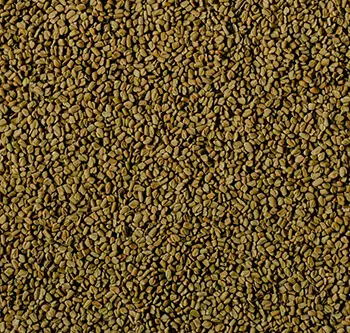
There's a product on the market today called Testofen, which contains fenuside, an extract found in fenugreek. According to the manufacturer, fenuside can boost testosterone and sexual desire, and may even increase muscle mass.
There's evidence to support these claims, too. One study of men who took a standard dose of Testofen on a daily basis found that the men experienced a boost in sexual arousal, energy, strength and sexual function. In another study, testosterone levels in men who took Testofen on a daily basis were higher than those who didn't take the drug.
Another extract from fenugreek seed powder called furosap has also been linked to an increase in testosterone. A study on rats found that the seeds might improve erectile dysfunction, but this hasn't yet been confirmed with human studies.
2. May Boost Female Reproductive Health
It's not only men who can benefit from fenugreek when it comes to reproductive health. Research also links fenugreek to an increase in both sexual desire and sexual function in women.
A study found that women who supplemented with fenugreek extract boosted their levels of estradiol, free testosterone and sexual desire when compared to the women who took a placebo.
3. Reduces Painful Menstruation & Polycystic Ovary Syndrome

Polycystic Ovary Syndrome, or PCOS for short, is a hormonal condition that can result in painful menstruation, unnatural hair growth, and even infertility. It's thought that the saponins in fenugreek seed powder can improve PCOS symptoms, with one study finding that women who supplemented with furocust (a type of fenugreek extract) saw a reduction in the size of their ovarian cysts and improved the response of several hormones, including the follicle-stimulating hormone.
4. May Increase Milk Production in Breastfeeding

Newborn babies rely on their mothers' breast milk to obtain all the nutrients they need for healthy growth. But some new mothers can struggle with breast milk production, which can be incredibly stressful and frustrating. Decreased breast milk production can result from a traumatic birth, stress, or have no obvious cause at all.
Though it's not always possible to produce milk if your body doesn't want to, herbal galactogogues - substances that can help mothers to produce more milk - may provide the solution.
There are many galactogogues out there, but fenugreek is one of the most popular.
There's evidence to suggest that the use of fenugreek seed extract really could work to stimulate milk production in new mothers.
A study reported that women who drank fenugreek tea produced around double the amount of milk than the women who didn't, which even improved weight gain of their babies. However, research on this subject is limited, and it's best to discuss your concerns with a qualified medical practitioner if you're struggling with milk production.
5. Improves Heart Health

The heart is one of the most important organs in the body, and while no natural substance should be used as an alternative medicine without the okay from your doctor, research suggests that fenugreek seed extract may help in boosting cardiac health.
In a study of type 1 diabetics who used fenugreek on a daily basis, it was recorded that the participants saw a number of benefits compared to those who didn't add fenugreek to their diets. Namely, fenugreek was found to reduce total cholesterol levels, including LDL (bad) cholesterol and triglycerides.
A study on rabbits also found that those that ate fenugreek seed extract had lowered cholesterol levels of a staggering 50% when compared to those that ate no fenugreek. Another part of the fenugreek plant, the leaves, have also shown promise when it comes to lowering bad cholesterol and even increasing the levels of HDL (good cholesterol) that's needed for overall heart health.
Antioxidant therapies are particularly beneficial for protecting the heart and helping it to recover after cardiac arrest. Early research suggests that the seed of fenugreek may provide the antioxidants needed to support heart tissue health.
6. Fights Obesity

Of course, the only way to beat obesity is to exercise and eat well, but certain foods can help you to lose weight at a faster rate. Research has found that fenugreek tea can leave people feeling satiated for longer and give them an increased feeling of fullness after a meal. For that reason, the satiating effect of fenugreek may be useful for people who are looking to cut down their calorie consumption.
A study on rats found that those that ate fenugreek had a lower BMI and didn't gain as much weight as the rats that didn't eat the seeds. Interestingly, the fenugreek-eating rats also had lower blood sugar levels and fat levels, as well as improved cholesterol levels.
7. May Prevent Blood Clotting

If you or a family member has experienced symptoms of blood clotting, it's likely that you will be familiar with anticoagulants. These drugs are offered to people who are at a higher risk of serious medical conditions like stroke and heart attack, and help to prevent blood clots from forming.
Though you should obviously seek help from a doctor for medical advice, diagnosis or treatment if you need it, medically reviewed research suggests that fenugreek can lower the rate of blood clotting by increasing how long it takes for blood to clot. For this reason, fenugreek supplements may be as effective as anticoagulants at preventing blood clotting.
8. Reduce Blood Sugar Levels
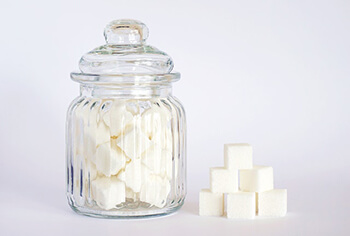
If you have type 2 diabetes, or you've been told that you're at risk of diabetes, there's evidence to suggest that a natural diabetes management may be fenugreek seeds. A study on non-insulin-dependent diabetes patients found that those who took fenugreek supplements had lower blood sugar levels compared to those who didn't.
Blood sugar isn't the only aspect of diabetes that fenugreek can assist with, either. Fenugreek may also improve insulin sensitivity, and this, of course, is linked to lowering blood glucose levels. More research is needed, but what we know so far about fenugreek's ability to reduce blood glucose levels is promising.

9. Promotes Thick, Strong Hair

Most people love the idea of having thick, healthy-looking hair, and if you're a fan of natural hair care remedies, you probably will have come across fenugreek seed extract in a number of guides online. Both the leaves and seeds of fenugreek can be combined with water to produce a paste, which can then be applied to the scalp like a hair mask.
Though there aren't many studies to support the hair health benefits of fenugreek, as a traditional remedy, fenugreek powder is used to boost hair growth, prevent dandruff, and prevent graying. Early research suggests that taking fenugreek might prevent testosterone from converting to DHT, which is commonly linked to hair loss.
Additionally, fenugreek powder is a good source of omega-3 and omega-6 fatty acids, both of which have been found to reduce hair shedding and promote thick, strong hair.
10. Improves Skin Health
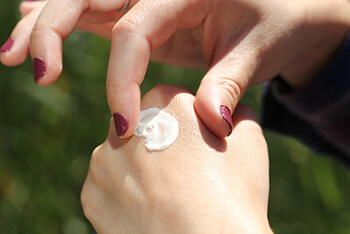
Your skin can also benefit from the topical use of fenugreek powder. Fenugreek can be used to make a natural skin cream, and a study noted that a lotion containing fenugreek could increase skin hydration while decreasing bumps and spots. It's thought that this is because fenugreek seeds contain mucilage, a substance that adds moisture to skin without irritation.
A study of skin cells found evidence that suggests that fenugreek can help reduce skin damage. When skin cells were exposed to fenugreek saponins, they experienced less damage from UV light. Just make sure to check with your doctor if you're prone to allergic reactions, as fenugreek can produce allergy symptoms in some people.
11. Supports a Healthy Brain
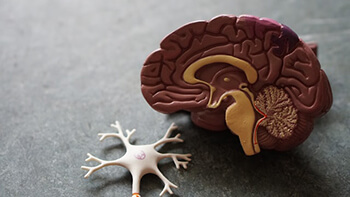
Alzheimer’s and Parkinson’s disease, which are both associated with declining brain health, may be helped by drinking fenugreek herbal tea. In a rat study, researchers noted that fenugreek could decrease the activity of an enzyme known as acetylcholinesterase, which causes a neurotransmitter called acetylcholine to deteriorate. As we need acetylcholine for a healthy brain, it makes sense that a decrease in acetylcholine could be linked to poor brain health.
Because fenugreek seeds can also reduce oxidative stress, they might also be able to reduce inflammation of the brain and improve memory.
12. Maintains Digestive Health

Several studies have found that fenugreek seed extract and oil can reduce ulcers and reflux, two common digestive problems that can cause long-term pain and discomfort. Though we don't have much information on how it may affect overall digestive health, fenugreek has been used for centuries in ayurvedic medicine as a digestive remedy.
Typically, the seeds are used to prevent diarrhea and flatulence, and this is likely because they contain a whole host of beneficial nutrients and are a great source of fiber.
13. Improves Kidney Function
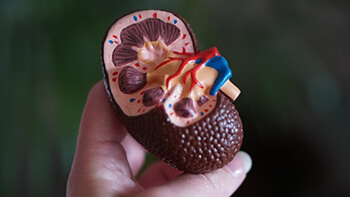
Our kidneys need to function properly to be able to filter the blood and support detoxing. According to a recent study, fenugreek seeds can increase red blood cell count and decrease calcium salts, helping to support kidney function and reduce the risk of kidney stones.
Other studies suggest that fenugreek can increase antioxidant levels while decreasing oxidative stress. The seeds have also been linked to improved quality of kidney tissue and even a normal kidney weight.
14. Reduces Inflammation & Oxidative Stress
Anti-inflammatories have numerous health benefits, and the more anti-inflammatory foods we can add to our diet per day, the better. Fenugreek is a fantastic anti-inflammatory food, and can reduce free radicals and boost antioxidants in the body.
Fenugreek leaves and powder can also increase levels of vitamin C and glutathione, and even increase levels of antioxidant enzymes like glutathione peroxidase and catalase.
15. Manages Osteoporosis
Diosgenin is a compound in fenugreek that has been linked to a reduction in osteoporosis development. Osteoporosis is caused by hyperactive osteoclasts, bone cells that are responsible for breaking down bone tissue.
It's thought that fenugreek seeds may be able to reduce or even prevent the development of osteoporosis by inhibiting osteoclast activity.
16. Cancer Treatment

Studies have found that taking fenugreek might be effective in slowing the development of a number of cancers, including colon cancer, breast cancer, leukemia, prostate cancer and bone cancer.
It's thought that the saponins in fenugreek extract prevent cancer cells from dividing as often and increase their sensitivity to cell death signals. More research is needed before we can say for sure how beneficial fenugreek is in treating cancer. Your doctor can provide medical advice when it comes to treating cancer, and you should never rely on fenugreek alone.
Conclusion
If you're keen to get your daily dose of fenugreek benefits, it's easy to add it to your diet. You can make a tea out of fenugreek powder or seeds by simply crushing the seeds into a powder (if you're not already using powder) and steeping them for about three minutes in boiling water. Strain into a mug, then add maple syrup or honey for flavor.
There are only a few side effects of fenugreek to be aware of. The most common side effects are harmless, though they may cause discomfort such as bloating and gas, headache, dizziness and nausea. Less common side effects include coughing, wheezing, and allergic reaction.
To make the most of this powerful anti-inflammatory natural medicine, it's best to drink a mug of fenugreek tea once a day. You can buy fenugreek from your local supermarket or online, so it's not a problem if the fenugreek plant isn't native to your region - everyone around the world can benefit from this healthful spice.

